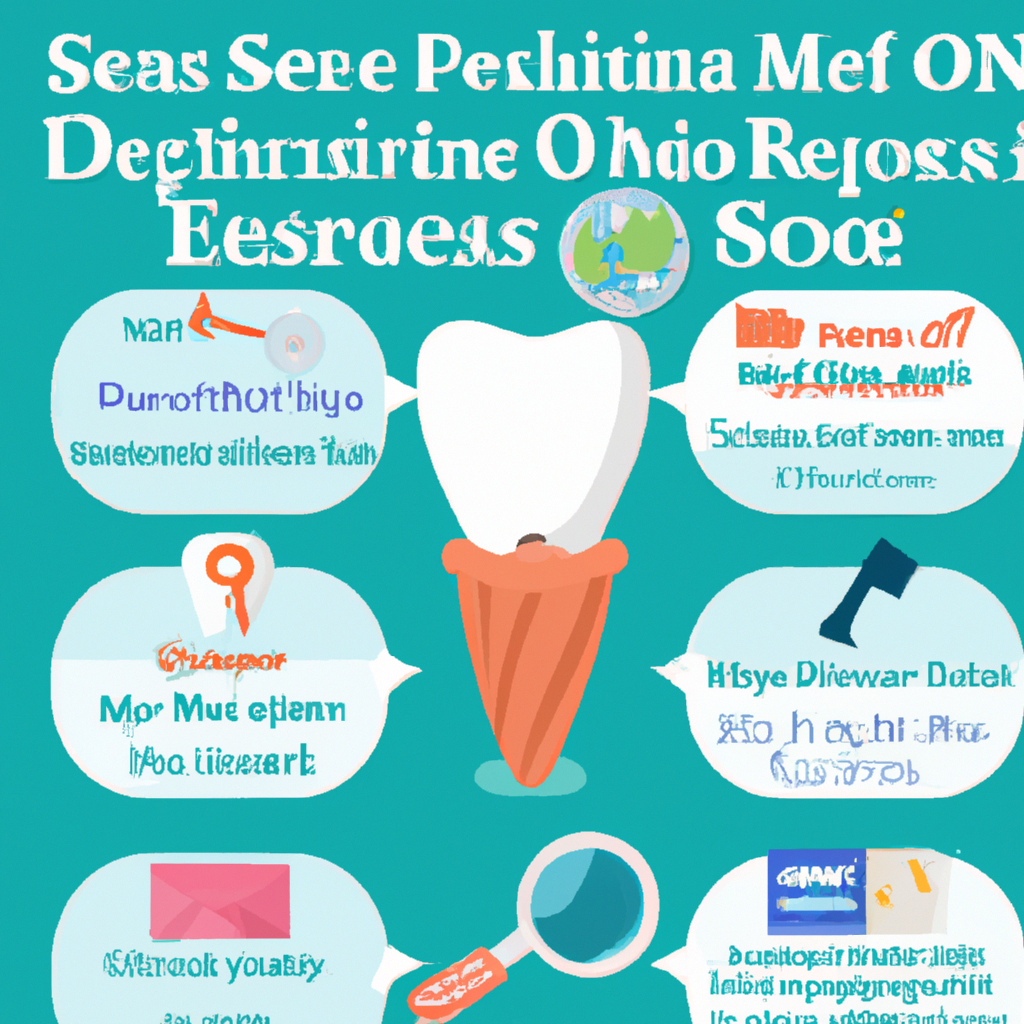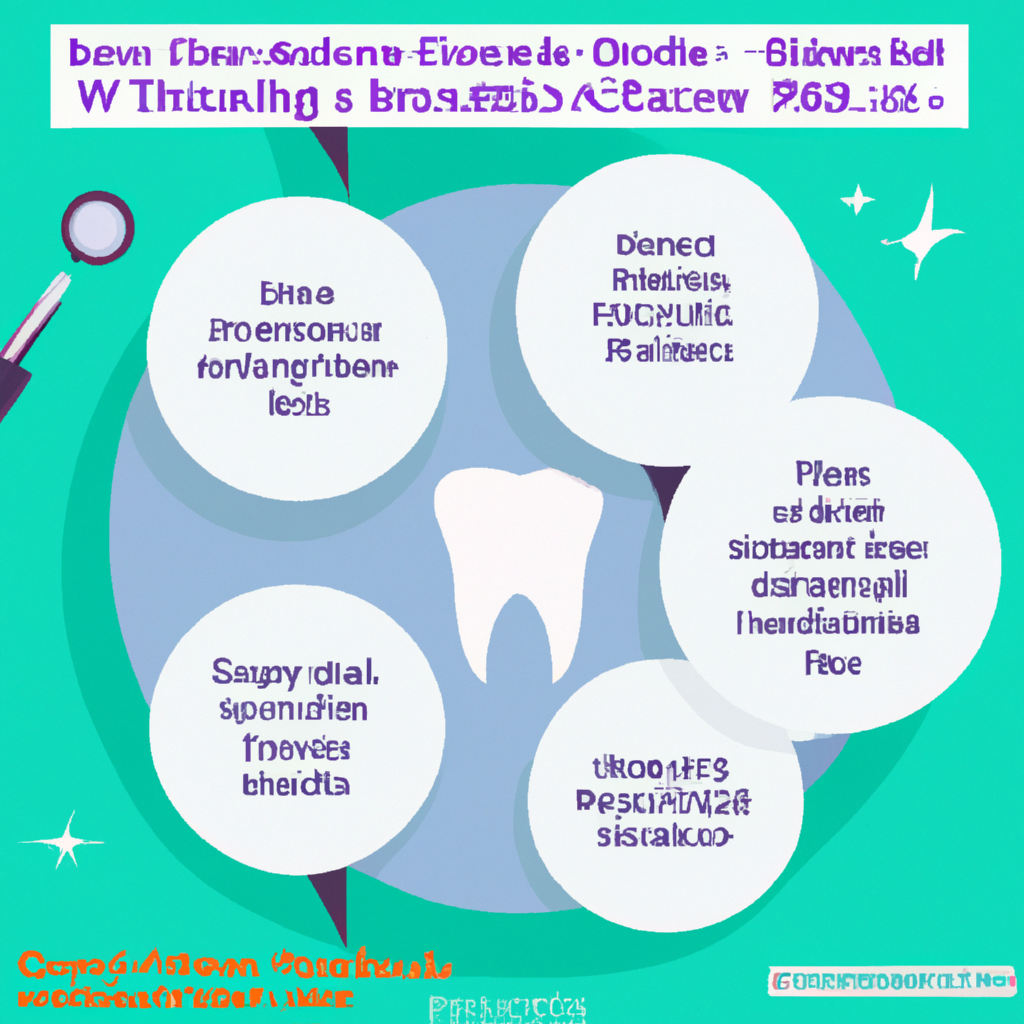Looking to boost your dental practice’s online presence? Look no further! In this article, we will explore effective strategies for dental SEO success. Whether you’re a dentist or an orthodontist searching for an SEO agency, we’ve got you covered. And guess what? Ortho Advertising, the agency that specializes in dental SEO, is conveniently located in Philadelphia. So, sit back, relax, and get ready to learn the secrets to optimizing your online visibility and attracting more patients to your practice.

Importance of Dental SEO
Boosting Online Visibility
In today’s digital age, having a strong online presence is crucial for the success of any dental practice. The majority of people rely on search engines like Google to find information and services, including dental services. By implementing effective dental SEO strategies, you can boost your online visibility and ensure that your practice appears at the top of search results. This increased visibility not only helps more potential patients find your website but also establishes your practice as a reputable and trusted source within the dental industry.
Increased Website Traffic
When your dental website ranks higher in search engine results, it naturally leads to increased website traffic. People tend to click on the top results and are less likely to scroll through multiple pages. By integrating dental SEO techniques, you can attract a steady stream of relevant traffic to your website. This increased traffic provides more opportunities for potential patients to learn about your services and contact your practice for appointments.
Higher Conversion Rates
Having a high volume of website traffic is important, but it’s equally important to convert those visitors into actual patients. Dental SEO focuses not only on attracting relevant traffic but also on optimizing your website to encourage conversions. By using targeted keywords, engaging content, and effective call-to-actions, you can create a user-friendly website that compels visitors to take action. This can result in higher conversion rates, meaning more of your website visitors become actual patients.
Understanding Dental SEO
Definition and Purpose
Dental SEO refers to the techniques and strategies used to improve a dental practice’s online visibility in search engine results. The purpose of dental SEO is to attract targeted, relevant traffic to a dental website and convert that traffic into patients. It involves optimizing various elements of the website, including content, keywords, and technical aspects, to improve its ranking in search engine results pages (SERPs).
Key Elements of Dental SEO
There are several key elements that play a crucial role in dental SEO success. These include keyword research, on-page optimization, off-page optimization, website performance optimization, local SEO, tracking and analyzing performance, and enhancing user experience. Each of these elements contributes to improving a dental practice’s online visibility and attracting potential patients.
Importance of Keywords
Keywords are the foundation of dental SEO. They are the words and phrases that people use when searching for dental services online. Conducting thorough keyword research and using those keywords strategically throughout your website can help search engines understand the relevance and context of your content. By targeting the right keywords, you can increase your chances of ranking higher in search results and attracting the right audience to your website.

Conducting Keyword Research for Dental SEO
Identifying Relevant Dental Keywords
When conducting keyword research for dental SEO, it’s important to identify keywords that are relevant to your specific dental practice. Think about the services you offer, your location, and the needs of your target audience. Brainstorm a list of potential keywords and then use keyword research tools to refine and expand that list. By understanding the search behavior of your target audience, you can choose keywords that have high search volume and low competition.
Utilizing Keyword Research Tools
There are several keyword research tools available that can help you in your dental SEO efforts. Tools like Google Keyword Planner, SEMrush, and Moz Keyword Explorer provide valuable data on search volume, keyword difficulty, and related keywords. These tools can help you identify the most relevant and effective keywords to target in your dental SEO strategy. By utilizing these tools, you can make data-driven decisions and maximize the impact of your keyword optimization efforts.
Assessing Keyword Competition
When choosing keywords for dental SEO, it’s important to assess the level of competition associated with each keyword. Some keywords may have high competition, meaning many other dental practices are also targeting those keywords. While it’s not impossible to rank for highly competitive keywords, it may require more time and resources. On the other hand, targeting long-tail keywords (specific, longer phrases) with lower competition can be a more effective strategy, especially for smaller dental practices.
On-Page Optimization Techniques for Dental Websites
Optimizing Title Tags and Meta Descriptions
Title tags and meta descriptions are HTML elements that convey important information about a web page to search engine crawlers and users. Optimizing these elements by including relevant keywords and compelling, concise information can improve the visibility of your dental website in search results. Title tags should be clear, concise, and include your primary keyword, while meta descriptions should provide a brief summary of the page’s content and entice users to click through to your website.
Creating Unique and Engaging Content
Content plays a crucial role in dental SEO. Creating unique, informative, and engaging content not only helps your website rank higher in search engine results but also adds value to your visitors’ experience. Develop content that answers commonly asked dental questions, educates patients about various dental procedures, and showcases your expertise. Incorporate relevant keywords naturally within the content to improve its search engine visibility.
Utilizing Header Tags
Header tags (H1, H2, H3, etc.) are HTML elements that organize the content on a webpage. Using header tags properly not only makes your content more user-friendly but also improves its search engine visibility. The H1 tag should contain the main heading of the page and should include your primary keyword. Subheadings (H2, H3, etc.) can be used to break down the content into sections and help both users and search engines understand the structure of your page.
Incorporating Internal and External Links
Linking to other pages within your dental website (internal links) and linking to external reputable websites (external links) can improve the overall SEO of your dental website. Internal links make it easier for search engine crawlers to navigate and understand your website, while external links to authoritative dental resources or related websites can help establish the credibility and relevance of your content. Be strategic with your links and ensure they provide additional value to the user.

Off-Page Optimization Strategies for Dental SEO
Building High-Quality Backlinks
Backlinks, also known as inbound links, are links from other websites to your dental website. Building high-quality backlinks is an essential off-page optimization strategy. Search engines consider backlinks as votes of confidence for your website, indicating that other websites find your content valuable and trustworthy. Focus on acquiring backlinks from reputable dental websites, industry directories, local organizations, and authoritative sources. Quality is more important than quantity when it comes to backlinks.
Leveraging Social Media Platforms
Social media platforms provide an excellent opportunity to expand your online reach and engage with your target audience. By creating and regularly updating social media profiles for your dental practice, you can establish a strong online presence. Share informative content, educational videos, patient testimonials, and other engaging posts to attract and engage your followers. Social media interactions and shares can indirectly impact your dental SEO efforts by increasing brand awareness and driving traffic to your website.
Engaging in Online Dental Communities
Engaging with online dental communities, forums, and discussion boards can not only help you connect with other dental professionals but also drive traffic and increase your dental SEO visibility. Participate in discussions, share your expertise, and provide valuable insights. Include a link to your website in your profile or forum signature to increase visibility and potentially drive referral traffic to your site. This engagement can also help you establish yourself as a thought leader within the dental community.
Optimizing Website Performance for Dental SEO
Enhancing Website Speed
Website speed is a crucial factor in both user experience and dental SEO. Websites that load quickly provide a better user experience and are more likely to rank higher in search engine results. Optimize your website’s speed by compressing images, minimizing code, enabling browser caching, and utilizing content delivery networks (CDNs). Regularly monitor your website’s speed using tools like Google PageSpeed Insights or GTmetrix and make necessary improvements to ensure a fast and seamless user experience.
Optimizing Mobile Responsiveness
In today’s mobile-driven world, optimizing your dental website for mobile responsiveness is no longer an option – it’s a necessity. With an increasing number of people using smartphones and tablets to browse the internet, search engines prioritize websites that offer a mobile-friendly experience. Ensure that your dental website is fully responsive and adapts seamlessly to different screen sizes. Mobile optimization not only improves your dental SEO but also enhances user experience and drives more conversions.
Implementing SSL Certificates
SSL (Secure Sockets Layer) certificates are a vital security measure for websites, especially those that handle sensitive information like patient forms and appointments. Search engines prioritize secure websites and display a “secure” label in the address bar for websites that have an SSL certificate. Implementing an SSL certificate on your dental website not only protects user data but also boosts your website’s credibility in the eyes of search engines and potential patients.

Local SEO for Dental Practices
Claiming and Optimizing Google My Business Listing
Google My Business (GMB) is a powerful tool for local SEO and is essential for dental practices targeting a specific geographical location. Claiming and optimizing your GMB listing allows you to provide accurate information about your dental practice, including address, phone number, business hours, and website. It also enables patients to leave reviews and ratings, which can significantly impact your local SEO and attract more patients to your practice.
Acquiring Positive Online Reviews
Online reviews play a crucial role in building trust and credibility for your dental practice. Positive reviews not only influence the decision-making process of potential patients but also help improve your local SEO rankings. Encourage your satisfied patients to leave reviews on platforms like Google, Yelp, and Facebook. Respond to reviews, both positive and negative, professionally and promptly. Positive reviews, ratings, and responses can help differentiate your dental practice from competitors and attract more local patients.
Implementing Local Citations
Local citations are online references to your dental practice’s name, address, and phone number (NAP) on various platforms, such as local directories, online maps, and review websites. Consistent and accurate local citations help search engines understand your dental practice’s location and increase its visibility for local searches. Ensure that your NAP information is consistent across all platforms and actively seek out reputable local directories and industry-specific websites to list your dental practice.
Tracking and Analyzing Dental SEO Performance
Utilizing Google Analytics
Google Analytics is a powerful tool for tracking and analyzing the performance of your dental SEO efforts. It provides valuable insights into your website’s traffic, user behavior, conversion rates, and much more. By setting up Google Analytics on your dental website, you can monitor the effectiveness of your SEO strategies, identify areas for improvement, and make data-driven decisions to optimize your website for better results.
Monitoring Keyword Rankings
Regularly monitoring keyword rankings can provide valuable insights into the success of your dental SEO efforts. It allows you to see how well your website is ranking for targeted keywords and identify areas for improvement. There are several keyword tracking tools available that can automate this process and provide you with detailed reports on your keyword rankings over time. By tracking keyword rankings, you can adjust your SEO strategies accordingly and stay ahead of your competition.
Analyzing Website Traffic and Conversion
Analyzing your website’s traffic and conversion is crucial for understanding the effectiveness of your dental SEO efforts and identifying areas for improvement. Utilize Google Analytics and other tracking tools to measure the number of website visitors, their behavior on your site, and the percentage of visitors that convert into patients. Analyze this data to identify trends, spot opportunities for optimization, and make data-driven decisions to continually improve your dental website’s performance.

Importance of User Experience in Dental SEO
Ensuring Mobile-Friendly Design
User experience (UX) plays a significant role in dental SEO success. Search engines prioritize websites that provide a seamless and user-friendly experience, especially on mobile devices. Ensure that your dental website is designed responsively, meaning it adapts smoothly to different screen sizes and offers a consistent experience across devices. Mobile-friendly design not only improves your dental SEO rankings but also enhances user satisfaction and increases conversions.
Improving Website Navigation
A well-structured and intuitive website navigation system is essential for providing a positive user experience. Easy-to-navigate websites allow users to find information quickly and efficiently, increasing the chances of them converting into patients. Take the time to organize your website’s content logically, use clear menus, and incorporate a search bar for easy access to specific information. Streamlining your website’s navigation improves user satisfaction and reduces bounce rates, which can positively impact your dental SEO rankings.
Optimizing Call-to-Actions
Call-to-actions (CTAs) are crucial elements on your dental website that guide visitors to take a specific action, such as scheduling an appointment or contacting your practice. Optimizing your CTAs by making them clear, prominent, and persuasive can significantly improve your website’s conversion rates. Use action-oriented language, incorporate contrasting colors to make them stand out, and place them strategically on your website. A well-optimized CTA improves user experience and helps convert website visitors into patients.
Hiring a Dental SEO Agency
Evaluating Industry Experience
When considering hiring a dental SEO agency, it’s essential to evaluate their industry experience. Look for agencies that have a track record of working with dental practices and have a deep understanding of the unique challenges and requirements of the dental industry. Experience in dental SEO ensures that the agency is familiar with effective strategies for attracting dental patients and optimizing dental websites specifically.
Assessing Case Studies and Client Reviews
Case studies and client reviews provide valuable insights into the effectiveness of a dental SEO agency’s strategies. Look for agencies that can provide case studies showcasing their success in improving dental website rankings and increasing patient conversions. Additionally, read client reviews and testimonials to gauge the level of satisfaction and results achieved by past clients. A reputable dental SEO agency will have positive reviews and be transparent about their past successes.
Considering Local SEO Expertise
If you’re a dental practice targeting a specific geographical location, it’s crucial to consider the local SEO expertise of the agency you’re considering. Local SEO strategies differ from broader SEO strategies, and an agency with expertise in local SEO can help you optimize your website to target local patients effectively. By understanding the specific nuances of local SEO, such as local citations and Google My Business optimization, a dental SEO agency can help your practice achieve greater visibility within your target location.
In conclusion, dental SEO is vital for boosting the online visibility of dental practices, increasing website traffic, and achieving higher conversion rates. By understanding the key elements of dental SEO, conducting thorough keyword research, optimizing on-page and off-page elements, and ensuring a positive user experience, dental practices can attract more patients and establish themselves as industry leaders. Tracking and analyzing dental SEO performance, optimizing for local search, and considering the expertise of a dental SEO agency are also essential components of a successful dental SEO strategy. By implementing these effective strategies, dental practices can stand out in the digital landscape and achieve long-term success.

